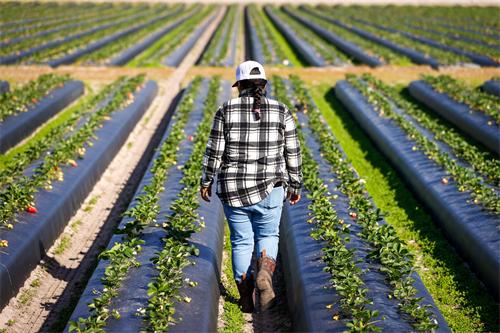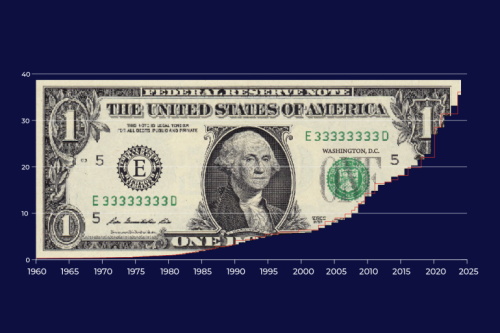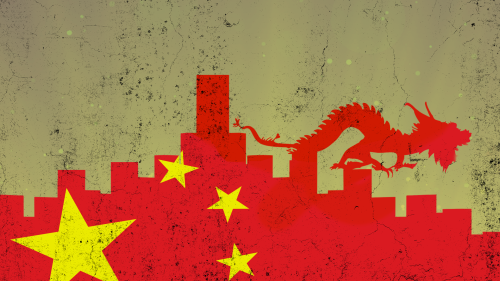US Immigration Crackdown: How Visa Rules Hurt Tech and Farm Sectors

In recent years, the tightening of US immigration policy has extended far beyond border enforcement. It now quietly reaches into university laboratories, Silicon Valley offices, and even the orchards and fields of California. From sweeping reforms under the Trump administration to a new round of visa restrictions announced by the State Department in early 2025, the message is clear: the US is raising the barriers to immigration. And this policy shift is gradually undermining two of America's most globally competitive sectors—technology and agriculture.
The Chilling Effect Behind Stricter Visa Rules
Since Donald Trump took office, the US immigration review system has undergone systemic tightening. Not only have undocumented immigrants faced more frequent deportations, but even foreign nationals with legal visas have felt mounting pressure. For example, international students are now required to submit their social media history when renewing their visas—some have had their visas revoked over casual online remarks made years ago. This has left many international students anxious, hindering both their academic progress and career development.
In 2025, the US State Department announced a new series of visa policy changes under the banner of cracking down on “gray channels,” but in reality, these measures have raised the bar for legitimate applicants. The F-1 student visa now requires mandatory in-person interviews again, and immigration officials are particularly sensitive to perceived “immigration intent.” The H-1B work visa lottery system has become even harder to win, and scrutiny of employer qualifications has intensified. Meanwhile, employment-based green card quotas have been slashed by 15% to just 140,000. As a result, many top talents are stuck at the border—or are simply giving up.
Some tech companies have already issued internal advisories urging foreign employees to avoid international travel unless absolutely necessary, fearing they might not be allowed back into the US. This anxiety is now spreading throughout the innovation ecosystem.
Tech Industry Shake-Up: Brain Drain Accelerates
The US tech sector has long depended on foreign high-skilled workers. Whether it's artificial intelligence, cloud computing, biotechnology, or new energy materials, the contributions of international researchers are undeniable. The H-1B visa program was originally designed to address domestic labor shortages, offering about 85,000 slots annually, including 20,000 reserved for applicants with advanced US degrees. But today, the program is increasingly bogged down by politics and red tape. The quotas fall far short of demand, the lottery system is discouraging, and rising political risks are leaving many skilled foreign workers in a precarious position.
Worse still, this uncertainty is now pushing talent away. Many researchers and engineers are considering moving to more immigration-friendly countries like Canada, Australia, or those in Europe. France’s Ministry of Education is promoting special programs to recruit international researchers. The University of Cambridge is actively targeting experts in AI and biotech. Australia has also launched special projects aimed at “poaching” disillusioned US talent. After Harvard University lost several key researchers over visa complications, this “talent vacuum” may only grow more severe.
For a country that prides itself on technological leadership, this is a dangerous sign. How can the US maintain its edge over rising competition from China, India, and the EU if it cannot retain its top minds?
Quiet Crisis in Agriculture: Labor Shortage Threatens Production
Compared to Silicon Valley’s glamorous image, the crisis in American agriculture is quieter—but no less dire. More than 70% of farm workers in the US are foreign nationals, most of whom legally enter the country through the H-2A visa program. These workers, largely from Central America, fill a critical gap in the domestic labor market.
But as visa policies tighten, the H-2A process has become more cumbersome, with significantly longer approval times. The result: labor shortages during peak harvest seasons, leading to reduced yields. Crops go unpicked and rot in the fields. Farmers face rising costs and are often forced to downscale operations or shut down altogether.
Foreign farm workers bring more than just manpower—they bring invaluable experience. Many have firsthand expertise in tropical and mountainous agriculture, and introduce techniques such as rice cultivation, organic farming, and vertical planting. These skills have enriched US agricultural practices and product diversity. Now, this expertise is increasingly stuck outside the US, blocked by bureaucratic red tape.
A Policy Dilemma: Protecting Americans or Hurting Them?
The government may claim to be “protecting American jobs” and “ensuring national security,” but the real outcomes often backfire. Tech firms struggle to hire, farm yields drop, business profits take a hit, price volatility increases, and supply chain efficiency suffers. Visa restrictions have become a silent killer of domestic competitiveness.
Even more concerning is the growing sentiment of “policy hostility.” In cities like New York and Los Angeles, increased Immigration and Customs Enforcement activity has triggered public clashes with local governments. This atmosphere leaves many immigrants who have lived and worked in the US for years feeling anxious and unwelcome. Talents who once hoped to put down roots in the US are now rethinking their future.
Immigration Is Part of America’s Competitive Edge
America’s prosperity has long been fueled by its open immigration system and cultural diversity. From the European immigrants of the early 20th century to today’s Asian tech workers and Latin American farm laborers, immigrants have always been central to the American narrative. When immigration policy becomes a political football, the damage extends beyond just paperwork—it threatens the very foundation of America’s economy and global standing.



